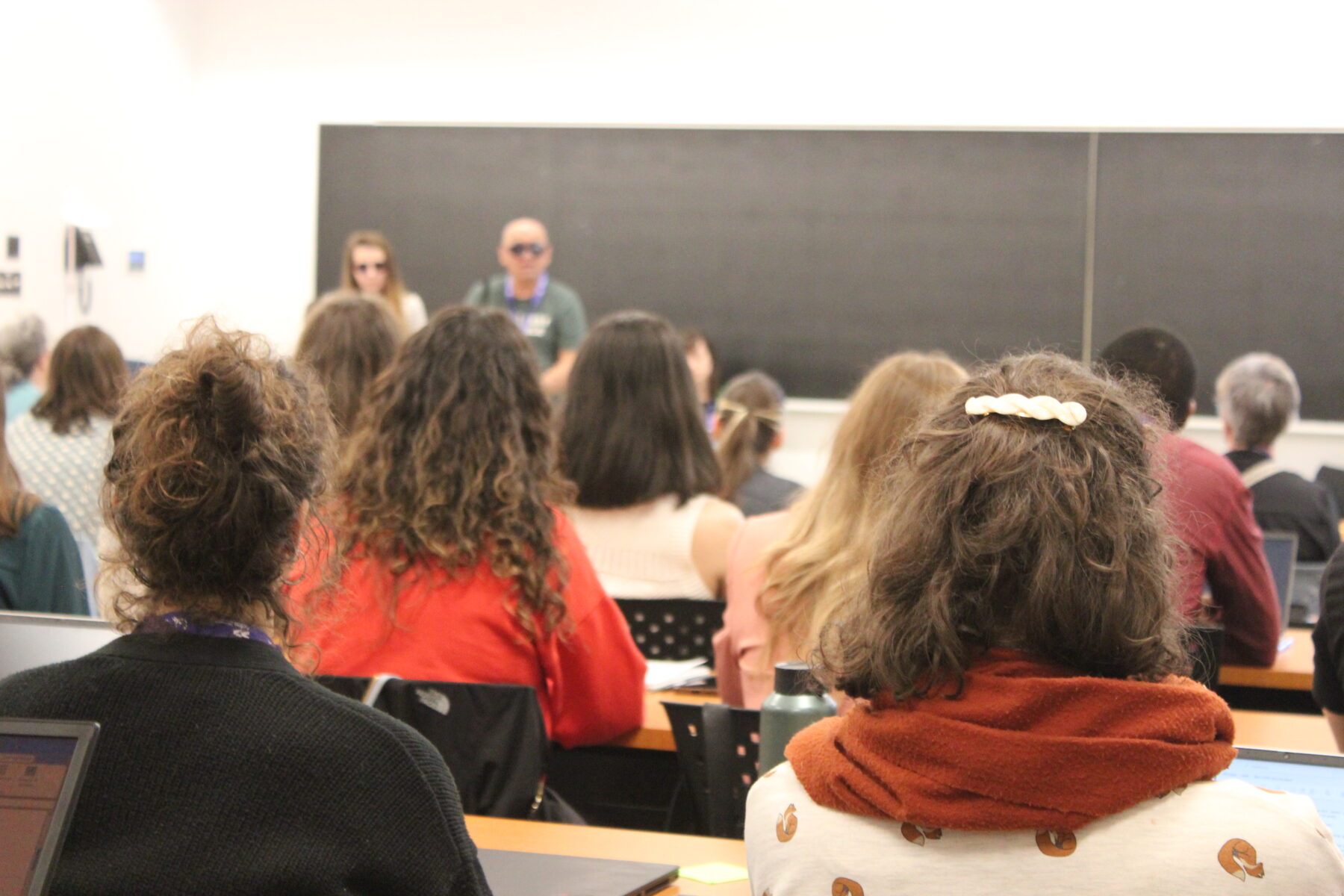On May 5 and 6, 2025, the Quebec Association for Equity and Inclusion in Post-Secondary Education (AQEIPS) had the privilege of participating in the 637 symposium – Pour une culture favorable à la santé mentale étudiante en enseignement supérieur : miser sur le développement et la mobilisation des connaissances avec les personnes étudiantes (For a culture conducive to student mental health in higher education: building on the development and mobilization of knowledge with students), held as part of the 92nd Acfas Conference at the École de technologie supérieure (ÉTS) in Montreal.
The symposium, proposed by the Observatoire sur la santé mentale étudiante en enseignement supérieur (OSMÉES) et l’Initiative sur la santé mentale étudiante (ISMÉ), aimed to mobilize research to better support educational institutions and students in implementing concrete mental health actions. Bringing together researchers, practitioners and partners, the event featured presentations, panels and collective reflection around a central question: how can mental health research better support students and educational institutions in implementing actions to promote student mental health?
Promoting inclusion in research and the mental health of students with disabilities
It was in this context that AQEIPS, in collaboration with Yves-Marie Lefebvre, a master’s student in urban studies at ESG, presented a paper entitled Favoriser l’inclusion en recherche et la santé mentale des personnes étudiantes en situation de handicap (Promoting inclusion in research and the mental health of students with disabilities), aimed at reflecting on ways of enabling the concerned students with disabilities to participate fully in university research. It highlighted :
- the systemic barriers encountered by students with disabilities in academic environments ;
- the concrete strategies they deploy to meet these challenges ;
- and the promising inclusive practices already in place in some institutions.
Throughout the symposium, a number of presentations also addressed diversity through issues that are too often under-documented, such as:
- support for students with disabilities;
- inclusive substance use education practices;
- transitions to internship settings;
- and the stigma experienced by queer and neurodivergent students.
**To learn more about the various topics covered, please consult the complete program.

Photo: Maude Chartier-Desjardins, research project manager at AQEIPS and doctoral student at UQAM, and Yves-Marie Lefebvre, master’s student at ESG, presented a paper entitled Promoting inclusion in research and the mental health of students with disabilities at the 92nd ACFAS conference.
A desire for change
Throughout the various events associated with the conference, our team was delighted by the mobilization of people from diverse backgrounds and their allies in the fight for their rights.
This was particularly the case at the 615 symposium – La communication accessible : une responsabilité partagée (Accessible communication: a shared responsibility), whose full program is available here, which brought together enriching and critical perspectives on the production of knowledge. A number of presentations testified to the forms of audism and ableism still prevalent in research, while proposing necessary practices: the presence of concerned co-researchers, adaptation of dissemination formats, recognition of invisible work and implementation of concrete accessibility measures (subtitling, accompaniment, and more!).
Whether we’re talking about people who are deaf, aphasic, autistic or living with other communication disorders, the presentations at both symposia converged on the same conclusion: placing experiential knowledge at the heart of research dynamics.
Such a stance calls for a rethinking of the ethical, material and symbolic conditions of research, to make it more accessible and ensure that it ceases to reproduce discriminatory power relations.
To learn more about the conclusion of this fine event, please consult the 92nd Acfas Conference Report here.
The AQEIPS team sincerely thanks the various teams involved in bringing this major event to fruition, and salutes the boldness of the presenters who are committed to accessibility and inclusion.
